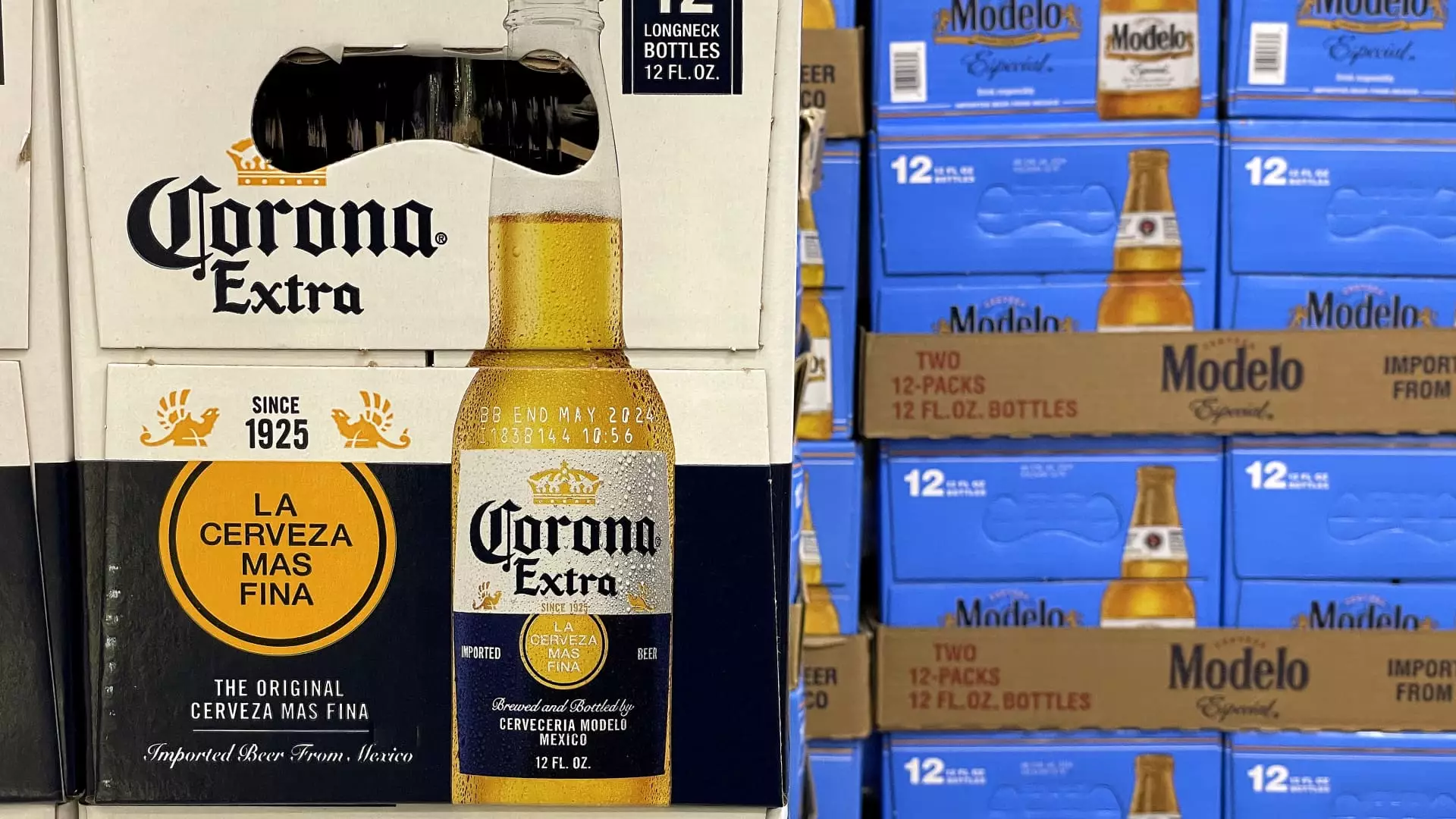Recently, Constellation Brands released their quarterly earnings, which have raised significant concerns among investors regarding the company’s future trajectory. The report highlighted net sales that remained stagnant at $2.46 billion for the quarter ending November 30, significantly trailing behind analyst expectations of $2.53 billion. This disappointing trend raises questions about the viability of the company’s growth strategy, especially in a sector where competition is fierce and consumer preferences are rapidly evolving.
To further complicate matters, adjusted earnings per share (EPS) showed a concerning decline, coming in at $3.25—just a penny shy of the previous year’s figures and below the anticipated $3.31. This indicates not only stagnation but could suggest deeper operational inefficiencies that need addressing. Investors who once looked at Constellation as a stronghold may now find themselves pondering whether they should reconsider their positions in the stock, especially as signs of weakness emerge.
Constellation Brands has built its reputation largely on its beer portfolio, which boasts well-known brands like Modelo and Corona. Although this segment has historically been viewed as the primary growth engine of the business, recent developments indicate that the once-reliable beer segment is starting to show signs of wear. The quarterly sales did witness a modest increase of 3% year-over-year, but that growth still fell short of Wall Street’s expectations.
Operational income for the beer segment also experienced a mere 1.7% growth, causing many analysts to speculate whether the glory days of robust beer sales are waning. Constellation’s management has suggested that factors like the rising popularity of cannabis-infused beverages and health trends such as weight loss medications are altering consumer behavior. This shift could have lasting implications not just for Constellation, but for the entire alcohol industry.
If the beer segment represents a flicker of hope, the performance of Constellation’s wine and spirits division reads more like cautionary tales. Sales in this segment plummeted by 14% year on year, amounting to $431.4 million, which starkly contrasts with enhanced expectations of $483 million. The operating income for this segment fell significantly, showcasing a troubling trend of declining margins that could hinder overall profitability.
Management’s revelation that shipment volumes decreased by 16.4% is particularly alarming. They also pointed out that the depletions—an essential metric measuring the volume of products sold—suffered a 4.3% decline, below the estimated expectation of a 5.5% decline. This segment appears to be a substantial burden, and analysts are beginning to wonder if divesting from wine and spirits could be the solution that Constellation Brands needs to refocus its growth strategy on the more lucrative beer franchise.
The wider economic environment adds another layer of complexity to Constellation’s outlook. Inflation has left many consumers believing they can’t be as indulgent, reportedly leading to less spending on alcohol altogether. Combined with potential policy changes from the incoming administration under Donald Trump regarding trade tariffs and immigration—factors that could directly impact production and distribution—Constellation finds itself navigating a perfect storm of challenges.
The company has already started to feel the heat, as evidenced by a hefty decline in stock price, which saw a drop of over 16% in one trading session recently. While Constellation is historically known for its resilience, the unusual string of difficulties suggests a need for caution among stakeholders. There is a palpable sense that the management’s optimism has been misplaced, particularly in light of the ongoing struggles facing both the beer and wine spirits segments.
With the landscape rapidly shifting, analysts have downgraded Constellation Brands’ stock ratings, and attention has pivoted towards the long-term viability of the investment. Many believe the company should prioritize its robust beer line while considering a strategic exit from the faltering wine and spirits market. Although there are flickers of hopeful guidance on free cash flow reaching between $1.6 billion to $1.8 billion, the overall projected declines in sales across both key segments reflect a troubling future.
As Constellation Brands faces mounting pressure from both external and internal factors, investors are beginning to reassess the wisdom of maintaining their positions. Although the beer segment showcases some positive trends, the notable underperformance of the wine and spirits division complicates the narrative significantly. Stakeholders would be wise to monitor developments closely, as new dynamics in consumer behavior and economic conditions continue shaping the landscape for this iconic beverage company.

